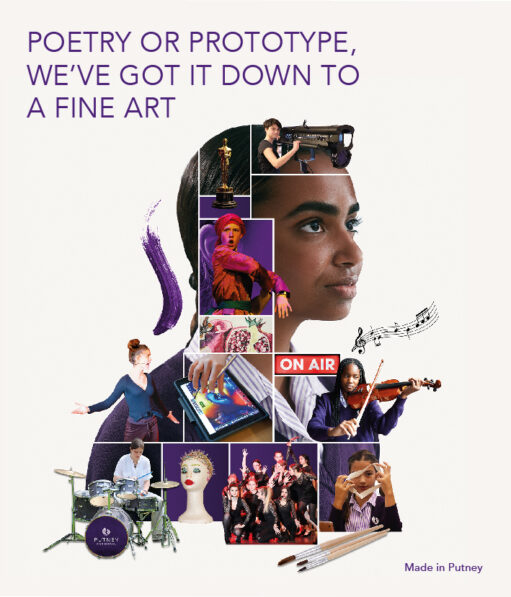Putney has always had a love affair with poetry. Our annual poetry festival, a highlight of the school year, is an arresting display of passion and prose, filled with creativity and with a healthy dose of wit thrown in. This year’s festival even featured its first AI category, with one experimental poem, created by machine learning, sitting with its critique alongside works by human authors.
Today, research by Internet Matters tells us that 44% of children are actively engaging with generative AI tools, with over half of those using them to complete home or schoolwork. With such large numbers so excited to embrace this new technology at school, how will this impact original thinking? Does teaching poetry, and all the other ways our students learn to think differently, still have significance today?

